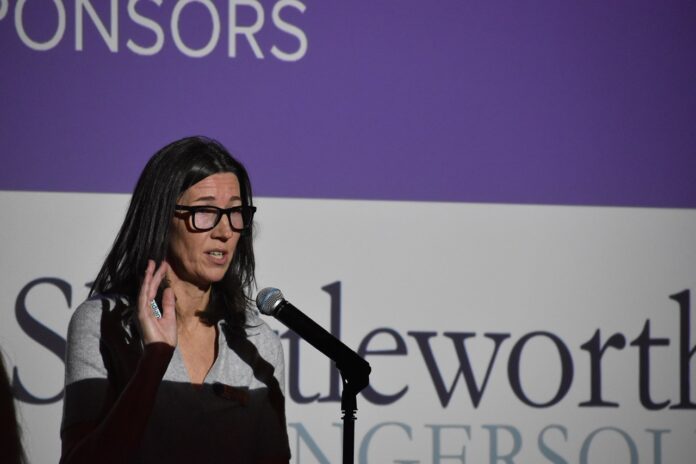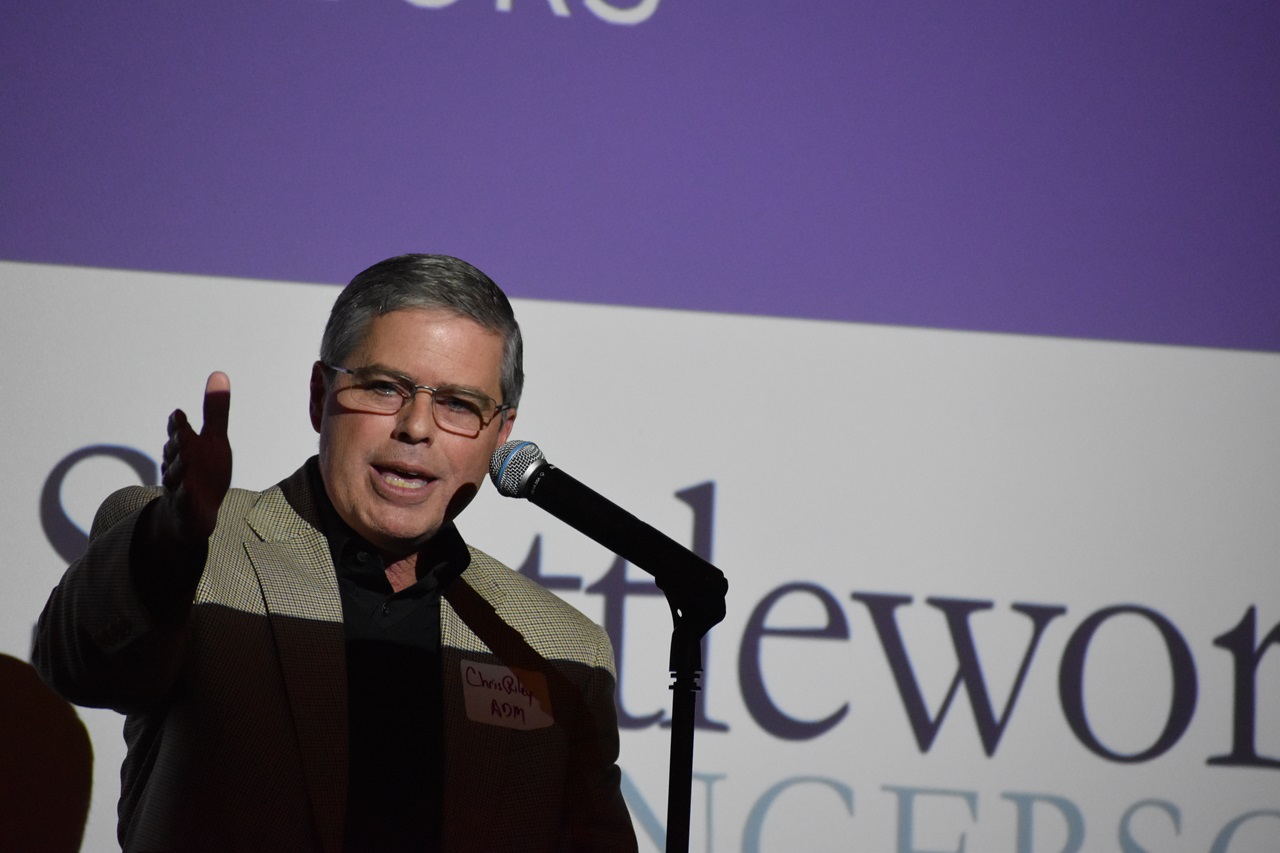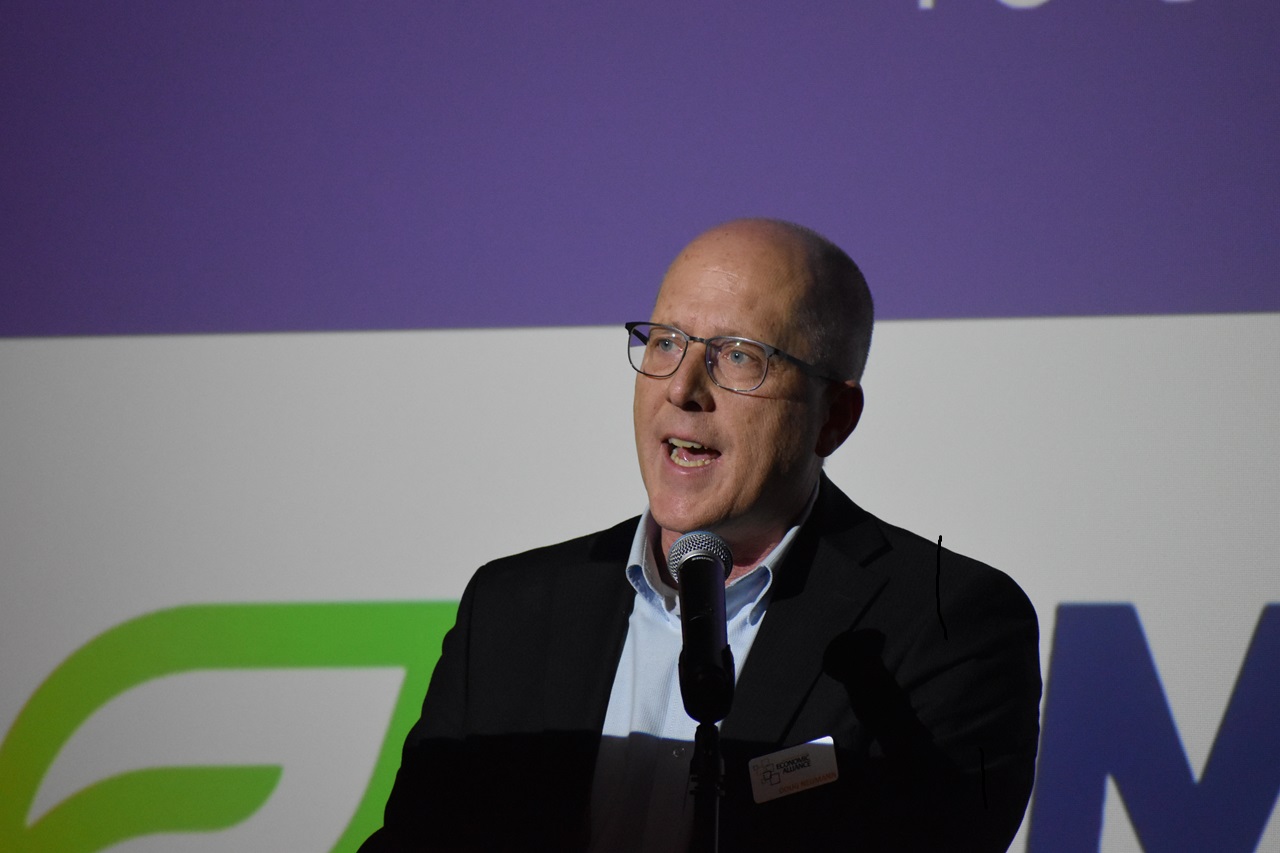
Corridor business leaders, policymakers and community stakeholders gathered Dec. 11 at the Cedar Ridge Distillery in Swisher for the seventh annual Legislative Launch, held by the Cedar Rapids Metro Economic Alliance and Greater Iowa City, Inc.
At the event, the two organizations stressed the importance of advocating for legislative policies that address the workforce challenges faced by many employers across Iowa, calling on state and federal legislators to implement policies aimed at spurring growth, bolstering employee retention, and attracting a skilled workforce to meet the demands of a changing economy.
“Businesses continue to tell us that workforce shortages remain one of their biggest challenges. In 2025, we will once again prioritize policies that focus on expanding Iowa’s talent pool and programs that incentivize businesses to grow,” said Nancy Bird, CEO and president of Greater Iowa City, Inc., in a release. “Our region has been at the forefront of creating innovative solutions, and we will continue to call for investment in talent-development initiatives such as aviation workforce development, community college job training programs, and local apprenticeship programs to prepare our region for the future.”
During the evening, the two organizations unveiled a list of policy priorities shaped by insights from more than 2,000 members, investors, and community stakeholders. Fostering a competitive business climate, broadening access to housing, and ensuring Iowa remains primed for long-term prosperity emerged as top contenders for 2025.
“We need to be pro-housing. If there’s no attainable housing, you will have a difficult time attracting and keeping a workforce,” said Jennie Wunderlich, president of PSC Distribution and Studio H2O. As a business owner, another top concern is the attraction and retention of “top talent,” she said. “In my business, the focus is on trades. I’m interested in policy that addresses how we are encouraging youth in trade.”
State Rep. Elinor Levin said many of her constituents cite child care and difficulty in making ends meet, whether it’s due to low wages or limited hours, as top workforce concerns.
“Iowa should incentivize local areas to develop child care options. In Johnson County, the wage enhancement program has been really effective,” she said, adding that there needs to be an effort to introduce multiple languages into the child care sector to better meet the needs of diverse communities.
“Brain drain” is another common issue found among employers — young people leaving the state after graduating from college.
“We need to stop the culture war,” said State Rep. Aime Wichtendahl, referring to policies taking aim at social issues seen as “progressive.” Retaining workers may look like offering grants to incentivize young people to study or stay in Iowa, she added.
With an eye on the upcoming legislative sessions, Greater Iowa City, Inc. and CRMEA are urging state and federal lawmakers to focus on six core policy areas, which closely mirror last year’s Legislative Launch agenda:
- Invest in talent development
- Incentivize business growth
- Remove barriers to expand our workforce
- Enhance community attraction and livability efforts
- Welcome workers from all populations
- Embrace solutions utilizing technology and natural resources
“Our region’s success – and by extension, the state’s – relies heavily on our ability to compete in a global economy,” said Doug Neumann, executive director of the Cedar Rapids Metro Economic Alliance. “Having simple, fair, responsible and predictable tax incentive programs allow our existing businesses to grow and helps us compete for new business. Our region has seen real return on investment utilizing certain state tax incentives and we will continue to champion programs that encourage capital investment, entrepreneurship and job creation in Iowa.”







